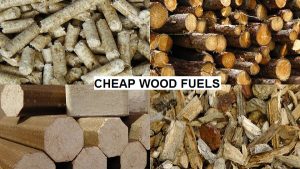
As winter approaches, many homeowners search for cheap wood fuels for heat their homes without sacrificing comfort or breaking the bank. Wood fuel remains one of the most economical heating options available, especially when you know which types offer the best value. From traditional firewood to modern biomass pellets, there are plenty of affordable choices to consider.
In this comprehensive guide, we’ll explore the most budget-friendly wood fuels on the market, including hardwood heat logs, cheapest heat logs, and affordable wood pellets. We’ll also examine how these compare to traditional options like coal and logs, helping you make informed decisions about your winter heating strategy.
Understanding Wood Fuel Economics
Before diving into specific fuel types, it’s important to understand what makes certain wood fuels more affordable than others. The key factors include:
-
Energy density – How much heat a fuel produces per unit
-
Burn time – How long the fuel lasts before needing replenishment
-
Moisture content – Drier fuels burn more efficiently
-
Local availability – Transportation costs significantly impact final price
For those new to wood fuels, our Guide to Firewood provides an excellent starting point to understand these fundamentals.
1. Biomass Pellets: Modern Efficiency at Affordable Prices
Biomass pellets have revolutionized home heating with their compact size and impressive energy output. These small, cylindrical fuels are made from compressed sawdust and wood waste, offering several advantages:
-
Consistent size and shape for automated feeding systems
-
Low moisture content (typically under 10%)
-
High energy density compared to traditional firewood
-
Clean burning with minimal ash residue
For those interested in premium options, A1 Wood Pellets represent the gold standard in pellet quality. Sourced from clean wood materials, these pellets offer exceptional heating performance. Learn more about their production process and specific heating benefits in our dedicated guides.
When comparing pellet types, our analysis of Soft Wood Pellets vs. Hard Wood Pellets can help you determine which variety offers better value for your specific needs.
2. Hardwood Heat Logs: The Best of Both Worlds
For those who prefer the traditional feel of logs but want modern convenience, hardwood heat logs present an excellent compromise. These manufactured logs combine the benefits of natural wood with enhanced burning characteristics:
-
Made from compressed hardwood sawdust
-
More consistent than natural firewood
-
Longer burn times than conventional logs
-
Often more affordable than premium firewood options
These logs work particularly well in traditional fireplaces and wood stoves, providing that classic wood-burning experience without the hassle of sourcing and seasoning natural logs.
3. Finding the Cheapest Kiln Dried Logs
While kiln dried logs typically command premium prices, savvy shoppers can find excellent deals on these high-quality fuels. The key advantages include:
-
Moisture content below 20% for optimal burning
-
Reduced smoke and creosote production
-
Easier ignition than air-dried wood
-
More consistent heat output
To maximize savings, consider buying in bulk during off-season periods. Many suppliers offer significant discounts during spring and summer months when demand is lower. For comprehensive information on wood varieties and their properties, consult our Complete Guide to Lumber.
4. Coal and Logs: Traditional Budget Heating
The combination of coal and logs remains a popular choice for budget-conscious homeowners, particularly in areas where both fuels are readily available. This hybrid approach offers distinct advantages:
-
Coal provides long, steady heat output
-
Wood adds quick warmth and ambiance
-
The combination can be more economical than using either fuel alone
-
Flexibility to adjust the mix based on availability and price
For those interested in alternative uses of carbon-based fuels, our guide to Cooking with Hardwood Charcoal explores another practical application of these materials.
5. Affordable Wood Pellets for Automated Systems
Modern pellet stoves and boilers have made affordable wood pellets an increasingly popular choice. When shopping for pellets on a budget, consider:
-
Buying in bulk (by the ton rather than by the bag)
-
Looking for mid-grade options that balance price and performance
-
Checking for local manufacturers to reduce transportation costs
-
Considering seasonal promotions and discounts
Comparing Wood Byproducts: Chips vs. Shavings
For those considering alternative cheap wood fuels, it’s worth understanding the differences between various byproducts. Our detailed comparison of Wood Chips vs. Wood Shavings examines their respective:
-
Burning characteristics
-
Heat output
-
Best applications
-
Cost considerations
This knowledge can help you make informed decisions when evaluating less conventional fuel options.
Making the Right Choice for Your Home
Selecting the most cost-effective wood fuel depends on several factors:
-
Your heating system – Not all fuels work well in all appliances
-
Storage space – Some options require more room than others
-
Local availability – Transportation costs affect final price
-
Personal preferences – Some homeowners prioritize convenience over absolute lowest cost
For those seeking the ultimate guide to pellet fuels, our Complete Guide to Biomass Pellets covers everything from benefits to pricing structures.
Final Recommendations
After examining all options, here are our top suggestions for budget-conscious homeowners:
-
For automated systems: High-quality biomass pellets offer the best balance of cost and convenience
-
For traditional stoves: Hardwood heat logs provide excellent value
-
For maximum flexibility: A mix of coal and logs can be most economical in some regions
-
For premium performance: A1 Wood Pellets deliver exceptional results despite slightly higher upfront cost
Remember that cheap wood fuels option upfront isn’t always the most economical in the long run. Factors like burn efficiency, heat output, and maintenance requirements all affect total cost of ownership.
For more information on any of these fuel types, explore our comprehensive library of wood fuel guides and comparisons. Stay warm and save money this winter with the right fuel choices for your home!